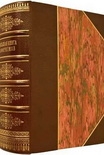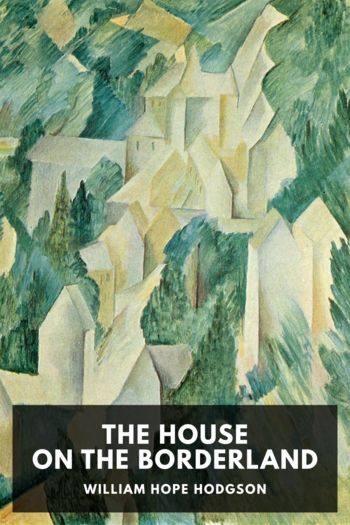Gluck by Diana Souhami (most interesting books to read .TXT) 📗

- Author: Diana Souhami
Book online «Gluck by Diana Souhami (most interesting books to read .TXT) 📗». Author Diana Souhami
… The flowers made all the difference to the dining room and the whole place was very cosy and pleasant to come back to. Thank you …
… I should think darling even a break of a weekend at the sea might do you good … the sea is a necessity once a year. Blows all the cobwebs away …
You know I think you eat too many eggs … often I have been astonished at the number of eggs you eat. I couldn’t do it without feeling like hell. They are very liverish.… It is more than sweet of you to have the outside of the house and studio painted.… It means as you say that I can get straight to work when I get back.… You are very good to me about all these things …6
The Meteor was inordinately ambitious for both her children, generous, certain of their abilities and proud of their achievements. She made no further reference to ‘the kink in the brain’ but put Gluck’s unconventional behaviour down to artistic licence. The tactics of stonewalling used for Craig were not extended to Gluck’s subsequent grander lady friends such as Constance Spry and Nesta Obermer, both of whom she liked and respected and with whom she happily took lunch and tea. The Meteor believed, or said she believed, that her daughter had a God-given gift and was something of a genius. She also thought her incapable of managing her own affairs. She acted on the slightest hint that Bolton House might need repainting or the car might need new tyres, or that Gluck might want clothes, or special canvases, or errands run or pieces of furniture acquired. After the death of her husband, she let it be known to the other trustees that she favoured generous treatment for her daughter. What Gluck wanted, after her father’s death and before the outbreak of war, in any material sense, she received.
But despite the closeness and regard between them there was at heart a mistrust. Gluck spoke of her mother as being unstable at centre. Though she showed her all her paintings and introduced her to her lovers and friends, she tried unsuccessfully to ward off her continual interventions, which took away Gluck’s sense of being in control of her own life. As the years passed Gluck became over-assertive about the most trivial things, as if the drawing of a wine cork or the last word of an argument put at stake her credibility and authority.
She made her mother privy to all that went on in her life and then appealed to her not to interfere. Not to try to promote her pictures, or intercede with The Fine Art Society, or organize her domestic affairs without being asked. Time after time these appeals were disregarded, for neither of them knew what boundaries to set or observe. Gluck was caught in a familial dependency with which she never really came to terms – by the circumstances of the Trust, by her mother’s attitude and no doubt to a large extent by her own feelings.
When she first moved to Bolton House Gluck worked in a small outhouse, formerly a stable for a pony, at the bottom of the garden. She did a picture of it in the winter of 1930, the path from her house cleared of snow, and called it ‘The Old Studio’. It hung on her dining-room wall. In 1931, on the site of this stable, her friend the architect Edward Maufe, whom she was to paint in 1945, built her a studio which featured in the design journals as a model of its kind. Maufe had that year won an open competition for the design of Guildford Cathedral. Out of 183 designs, his was chosen. Among his many commissions were Morley College London and, after the war, The Runnymede Memorial to airmen who had died, The Playhouse, Oxford, the reconstruction of the Middle Temple and Gray’s Inn, the Presbyterian Church of St Columba’s, Pont Street. Gluck paid for the studio out of her own money at a cost of £1500. She walked to it from the house over a stone-paved garden, also designed by Maufe, flanked by flowerbeds and with a central lily pond fed by a concrete fountain.
The design of the studio was economical and elegant. A crescent-shaped entrance with stone columns and double-glass doors opened on to a small lobby with a bathroom on one side and kitchen on the other. Solid folding doors then led to the studio itself, fifteen feet high, warmed by the most modern of slow combustion stoves with a curb of stainless steel and with the whole of the north wall taken up with large metal windows. The walls were insulated and painted in broken white. There were built-in picture racks and bookshelves. The floor was laid in narrow oak boards and the room had exceptional acoustics. Gluck had a small grand piano in there, and her singing elicited compliments from Crichton-Browne, Maufe and the housekeeper, Mabel. At the south end a secret sleeping gallery was reached by stairs behind concealed doors. Artificial lights were all in recessed niches. The studio boasted every convenience and was much photographed and written about.
It did, however, annoy the neighbours. Mr Brousson from Fenton House, over the wall at the end of Gluck’s garden, said it overlooked his garages. His house was grand and old and he disliked the ‘modernism’ of Gluck’s new workplace. He maintained that because the new studio was so different from the old pony stable Gluck had forfeited her right to ‘Ancient Lights’. He had, he said, no wish to be unneighbourly; but he threatened to put up a new building or hoarding, just for the sake of it, in front of her studio windows. Maufe challenged him to do his worst, which in the event he did not.
And Gluck in turn panicked when, in 1932





Comments (0)